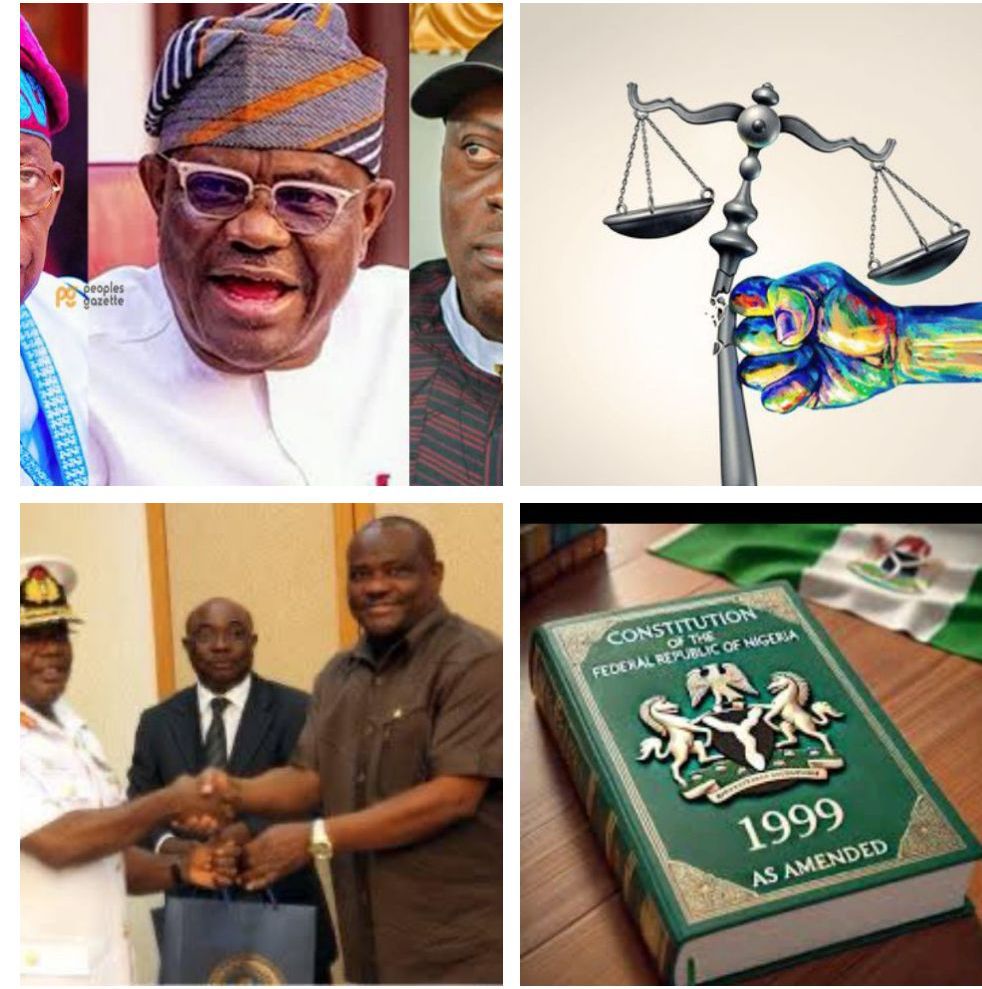President Bola Ahmed Tinubu’s recent declaration raises serious constitutional, political, and ethical questions. This analysis uncovers the legal inconsistencies, political misrepresentations, and underlying motives behind the move.
Constitutional and Legal Violations
The executive proclamation suspending the governor, deputy governor, and House of Assembly members is a direct violation of the 1999 Constitution of Nigeria (as amended). Nowhere does the constitution grant the president unilateral authority to suspend a sitting governor or dissolve the legislature.
False Claim 1: Presidential Power to Suspend Elected Officials
Reality: Section 305(1)-(6) allows the president to declare a state of emergency but does not empower him to suspend elected officials.
Misrepresentation:
Tinubu asserts that the governor “failed to request” a state of emergency under Section 305(5)—a deliberate distortion. The law states a governor may request a state of emergency, not that he must. The president cannot use this as grounds to impose one.
False Claim 2: Supreme Court Declared Rivers Had No Government
Reality: No such Supreme Court ruling exists. The judiciary lacks the power to dissolve a state government.
Exaggeration: Tinubu twists legal interpretations to justify his decision. At most, the court may have ruled on the defected lawmakers, but it never declared Rivers State leaderless.
The Fubara vs. Wike Political Crisis and Tinubu’s Bias
The declaration conveniently benefits Nyesom Wike, the former governor of Rivers State and now Minister of the FCT—an ally of Tinubu. This raises serious concerns about political interference.
False Claim 3: House of Assembly Demolition as a Justification
Reality: The House of Assembly was structurally damaged after an attack and fire incident, leading to its demolition. The federal government made no effort to rebuild it. Yet, Tinubu frames this as Fubara’s refusal to act, but fubara acted by refurbishing the assembly directly
Political Weaponization:
This issue resurfaces 14 months after the incident—suggesting it was never a governance concern but a pretext for political interference.
False Claim 4: Militant Activity and Security Threats, but that has been existing even during Wike’s administration.
Reality: Tinubu claims militants loyal to Fubara vandalized pipelines and threatened violence while the governor failed to act.
Misrepresentation:
There is no concrete evidence linking Fubara to militant activities. Moreover, pipeline security falls under federal jurisdiction, not the governor’s office. The president is shifting blame while ignoring the federal government’s failure in security management.
The Intent to Witch-Hunt Fubara
- Key Indicators of a Political Coup
- Selective Suspension of Government Institution
- The executive and legislature are suspended, but the judiciary remains untouched.
- If this were about governance, why leave one arm of government intact?
Appointment of an Unelected Administrator
Instead of allowing constitutional succession (where the deputy governor assumes leadership), Tinubu appoints a retired military officer—Vice Admiral Ibokette Ibas.
This undermines democracy and sets a dangerous precedent.
No Similar Actions in Other Crisis-Hit States
More severe political and security crises exist in Benue, Plateau, Zamfara—yet no emergency rule was imposed there.
Why only Rivers?
- Because Fubara resists Wike and Tinubu’s political control, so it now a Political Takeover Disguised as Constitutional Action
- It points Tinubu’s declaration as a calculated political move, not a constitutional necessity.
- Misrepresents legal rulings, and also,
- Exaggerates security concerns, which seeks to replace Fubara with a loyalist.
This is not governance, it is a power struggle wrapped in legal jargon. If allowed to stand, it sets a dangerous precedent, enabling the federal government to remove any governor under the false pretense of an emergency.
Nigeria’s constitution weeps.
Disclaimer
This article is an opinion piece intended for informational purposes only. The views expressed here do not incite unlawful actions but remain within the framework of Nigeria’s legal rights to freedom of expression and peaceful assembly. The author urges all stakeholders to respect the rule of law and seek peaceful political resolutions.







